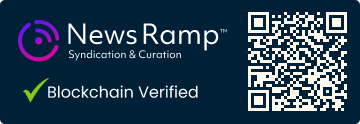Classiq Launches Qmod: A Revolutionary High-Level Language for Quantum Programming
July 23rd, 2024 12:00 PM
By: Newsworthy Staff
Classiq introduces Qmod, the first high-level language for quantum programming, aiming to make quantum computing more accessible and efficient for developers and researchers worldwide.

In a significant advancement for the field of quantum computing, Classiq has announced the general availability of Qmod (Quantum Modeling Language), marking a new era in quantum programming. This innovative high-level language is designed to transform the way developers and researchers approach quantum algorithm design, potentially accelerating the adoption and practical application of quantum computing across various industries.
Qmod addresses one of the most significant barriers to entry in quantum computing: the complexity of programming at the hardware level. By providing a high level of abstraction, Qmod allows developers to focus on the functional intent of their algorithms rather than getting bogged down in the intricate details of quantum implementation. This approach not only makes quantum computing more accessible to a broader range of professionals but also promises to dramatically increase the efficiency of quantum software development.
The introduction of Qmod comes at a crucial time in the evolution of quantum computing. As Heather West, Ph.D., Research Manager of Quantum Computing at IDC, points out, "To deliver a business or scientific value, quantum computing must be useful and accessible to scientists and engineers seeking to use quantum computing to solve real-world problems, which today it is not." Qmod aims to bridge this gap by providing a more intuitive and efficient programming environment.
One of the key features of Qmod is its declarative nature. Users can define what their algorithm should achieve, leaving the Classiq synthesis engine compiler to optimize for hardware and other constraints automatically. This approach significantly reduces the complexity of quantum programming and allows for more rapid development and iteration of quantum algorithms.
Qmod also offers flexibility and interoperability, supporting multiple input formats including native syntax, Python, and graphical representation. This versatility ensures that Qmod descriptions can be easily translated and remain compatible across different platforms and hardware configurations, a crucial feature in the rapidly evolving landscape of quantum computing technologies.
The language is designed to be industry-ready, providing robust and scalable solutions for enterprise-grade quantum software development. As qubit counts continue to grow and coding complexity increases, Qmod's ability to abstract away low-level details while maintaining performance becomes increasingly valuable.
Nir Minerbi, CEO and co-founder of Classiq, emphasizes the transformative potential of Qmod, stating, "By abstracting the complexities of quantum programming, Qmod delivers the ability to create and deploy dynamic quantum applications effortlessly. In some cases, it'll use perhaps five lines of code instead of the traditional 100 lines of code."
The Classiq platform ensures that quantum algorithms designed with Qmod can be seamlessly compiled for a wide range of hardware and simulation environments. This compatibility, coupled with the platform's ability to dynamically adapt implementations to different hardware configurations, allows for rapid benchmarking and optimization of quantum algorithms.
As quantum computing continues to advance, tools like Qmod will play a crucial role in democratizing access to this powerful technology. By lowering the barrier to entry and increasing development efficiency, Qmod has the potential to accelerate innovation in quantum computing applications across various fields, from finance and pharmaceuticals to logistics and materials science.
The release of Qmod represents a significant step forward in the maturation of quantum computing as a practical tool for solving complex problems. As more developers and researchers gain access to this high-level language, we can expect to see an increase in the diversity and sophistication of quantum applications, potentially leading to breakthroughs in areas previously thought to be computationally intractable.
Source Statement
This news article relied primarily on a press release disributed by News Direct. You can read the source press release here,
